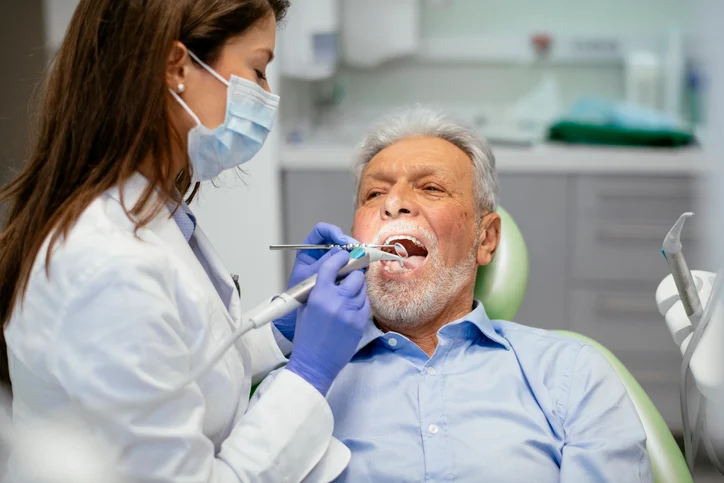
Does Health Insurance Cover Oral Surgery?
Let us help you save up to 30% on Health Insurance

Let us help you save up to 30% on Health Insurance
Home / Blog / Health Insurance / Does Health Insurance Cover Oral Surgery?

Good dental health is an indicator of your overall health. Yet, CDC data from 2014-2017 estimates that only 50.2% of adults (18-64 years old) have annual dental coverage, which highlights the importance of taking care of oral health.
Even though health insurance sounds like it covers anything health-related, from going to the doctor to dental care, it doesn’t usually cover dental. In fact, dental coverage is a different insurance product entirely.
But what about dental emergencies or surgeries? Read on to find out how health insurance can help you cover the cost of some dental procedures.
The answer is bittersweet; some dental surgeries are covered by medical insurance, while others are not. The real issue is that many Americans don’t have dental coverage (an estimated 76.5 million, in fact), so if their health insurance doesn’t cover dental surgery and it’s too costly, they are not as likely to proceed with the oral treatment.
Medical and dental insurance plans use codes (description of the procedure) to bill your insurance policy. Your insurance company will receive a bill for the treatment and chip in if the code is something your plan covers. Dentistry insurance codes typically answer the following:
Because dentistry cases are not as simple as billing for a doctor’s visit, there isn’t always a clear-cut bill amount or answer as to who is responsible for paying the bill, whether medical or dental coverage. Since every health insurance plan is different, consult your insurance plan before you book your dental surgery to see if it covers all, some, or none of your procedure.
When it comes to paying for your dental procedure, every situation is different. For example, some circumstances require policyholders to bill their medical company first, while others require you to bill dental plans before medical.
The bottom line, before you do any dental procedure, consult with the dentist (who may know whether your health plan covers it) and your insurance provider to see if they cover the oral work and, if so, how to bill for it.
For policyholders that want to avoid headaches, familiarize yourself with your health insurance coverage. Typically anything medically necessary is covered by health insurance, while dental plans cover preventative treatments. Medically necessary is anything that directly affects your quality of life and well-being.
Dental coverage may even help cover the cost of orthodontics or prosthodontics (dentures). In addition, certain medical conditions permit you to bill health insurance for dental coverages.
Maintaining good oral health is paramount to maintaining optimal health. While health insurance doesn’t typically cover routine dental treatments and preventative care, it does sometimes cover dental surgery.
If you need dental surgery, call your insurer to see if your health insurance covers it. It never hurts to ask and you may learn that your health insurance plan will pay for your dental surgery and then you can get the treatment you need without paying fully out of pocket.
Lauren Lewthwaite Lauren Lewthwaite has been freelance writing for almost five years writing content that ranges from health to insurance and everything in between. Lauren is also a trained translator in French and English and is a dog-mom to an adorable Australian Shepherd.